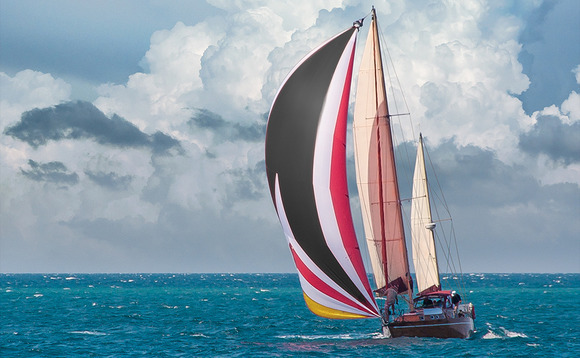
DACH managers benefiting from fundraising tailwinds

The DACH region has enjoyed a busy first half in terms of fundraising, particularly in the venture space. Industry observers share their views on current trends with Katharina Semke
Despite a positive mood on the ground, Germany and its neighbouring countries did not see a significant number of fund closings in 2015. However, judging by activity in the first months of 2016, this was probably a coincidence of timing rather than a case of DACH-based GPs failing to capitalise on global fundraising tailwinds.
This year has seen 11 fund closings so far, according to unquote" data, including four venture capital funds, one co-investment fund and two funds-of-funds, in addition to buyout vehicles. Swiss GP Adveq notably held final closes for two vehicles in January 2016, reaching €323m for its Adveq Specialized Investments fund and €102m for its Adveq Europe Co-Investments vehicle. Another highlight followed in August, when Deutsche Beteiligungs AG (DBAG) closed its seventh fund at €1bn, with the vehicle consisting of two sub-funds: an €800m principal fund, of which €183m came from listed entity DBAG for its co-investments, and a supplementary €200m top-up fund, which will be used for larger transactions.
Mounir Guen, CEO of MVision Private Equity Advisers, says fundraising in Germany generally benefits from significant tailwinds: "Germany is an area that is very much sought after by the investor community. Most investors have been underweight in Germany and are looking for more German exposure. When German funds come to market there is always a rush and a popularity."
The landscape in Germany has become much more receptive to alternative investments than it was 10 years ago. Post financial crisis, the institutional investor community in Germany has accelerated the reallocation of capital in their portfolios" – Alexander Vogt, Linklaters
Linklaters partner Alexander Vogt sees this as the culmination of positive developments in recent years among both LPs and GPs: "The landscape in Germany has become much more receptive to alternative investments than it was 10 years ago. Post financial crisis, the institutional investor community in Germany has accelerated the reallocation of capital in their portfolios."Nina Dohr-Pawlowitz, CEO of DC Placement Advisors, adds that insurance companies in particular, which are now focusing strongly on infrastructure debt and private debt, are also reallocating more investments to private equity.
Guen has seen some groups of new investors turning their attention toward Germany and Europe in general. "There are more Americans, which are either growing their programme or diversifying more, or haven't been able to secure enough exposure. And then there are new investors in Asia, in the Middle East, and in Latin America, who are all coming to market. They are looking to increase European exposure and are looking at the more industrial European economies," he says, adding that these LPs are a varied mix of pension funds, sovereign wealth funds, foundations, endowments and funds-of-funds.
However, it is not as much the LP base as the way in which they interact with the GPs that has changed in recent months, according to market observers. The larger ones in particular have become much more sophisticated and often do not content themselves with a classic fund structure anymore – this trend has had repercussions for private equity across Europe, and Germany has been no exception. "The large investors are much more reluctant to go into co-mingled vehicles and accept the standard deal," says Vogt. "We are seeing large investors flex their muscles in a different way now and saying they are much more interested in working on a managed account basis with particular managers, to allocate significant capital to those managed accounts."
Homegrown venture
Looking at fund types in more detail, German venture capital funds were on a roll during H1 2016, with four closes of vehicles closing wholly or in part in the country, according to unquote" data. Linklaters' Vogt finds that "there is a recognition outside of the country that innovation in Germany is an area in which you can make money".
However, unlike larger funds, local VCs seem to struggle to attract money from international investors. MVision's Guen sees US foundations and endowments are currently slow to invest in venture opportunities in Germany, but notes this is also true of Europe in general. "The returns they are getting from US venture capital firms are just outstanding. Europe was a bit slow to start," he says.
Coparion, which closed its maiden fund on €225m in March, is largely funded by the European Investment Fund (EIF) and German government-owned development bank KfW Bankengruppe. Cherry Ventures, which closed its second vehicle this year, also received funding from EIF and states that European LPs account for the vast majority of its backers. KfW itself does not shy away from its crucial role of supporting local venture funds and therefore plans to provide €600m for German startups in the years to come – a strategy justified by the relative lack of non-public institutional investors in the country.
Debt funds is another area where recent developments in Germany are bound to keep managers happy, and interest from foreign investors is expected to pick up. The country has seen regulation in this market loosen considerably in recent months, as private debt funds do not need a banking licence anymore to operate in the country. Private debt products are a rising asset class among LPs in general worldwide, and German managers can now properly partake in the action. "We have seen an increasing number of funds in the market and increased investor appetite for debt-based products," says Vogt.
Latest News
Stonehage Fleming raises USD 130m for largest fund to date, eyes 2024 programme
Sponsor acquired the public software group in July 2017 via the same-year vintage Partners Group Global Value 2017
Stonehage Fleming raises USD 130m for largest fund to date, eyes 2024 programme
Czech Republic-headquartered family office is targeting DACH and CEE region deals
Stonehage Fleming raises USD 130m for largest fund to date, eyes 2024 programme
Ex-Rocket Internet leader Bettina Curtze joins Swiss VC firm as partner and CFO
Stonehage Fleming raises USD 130m for largest fund to date, eyes 2024 programme
Estonia-registered VC could bolster LP base with fresh capital from funds-of-funds or pension funds









